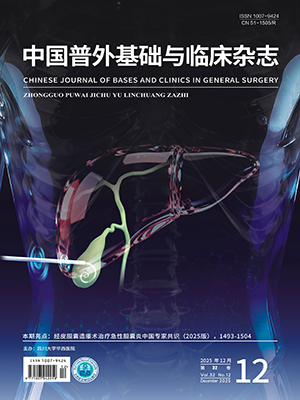【Abstract】ObjectiveTo observe the chemotactic role on umbilical vein endothelial cells of SMMC7721 hepatic carcinoma cells with angiopoietin gene expression in order to study the effects of angiopoietin on hepatocellular carcinoma angiogenesis.
MethodsAngiopoietin gene 1 (Ang-1) fragment and Ang-2 fragment was transfected into SMMC7721 liver carcinoma cell line by Lipofectamine induced gene transfection technique. The chemotactic role of SMMC7721 liver carcinoma cell line on umbilical vein endothelial cells was observed through microchemotaxis analysis.
ResultsThe chemotactic response of the Umbilical vein endothelial cells was obviously improved with Ang1 expression (P<0.05). This effect seemed to be inhibited by Ang-1 antibody (P<0.05). However, there was no difference of the chemotactic effects with or without Ang-2 expression (P gt;0.05).
ConclusionAng-1 is a chemotactic factor for vascular endothelial cell and a promoter for angiogenesis, whereas Ang-2 does not show obvious chemotactic role.
Citation: PENG Lin,OU Jinrui,SUN Jian.. Chemotaxis on Umbilical Vein Endothelial Cells of SMMC7721 Hepatic Carcinoma Cells with Angiopoietin Gene Expression. CHINESE JOURNAL OF BASES AND CLINICS IN GENERAL SURGERY, 2006, 13(2): 154-157. doi: Copy
Copyright ? the editorial department of CHINESE JOURNAL OF BASES AND CLINICS IN GENERAL SURGERY of West China Medical Publisher. All rights reserved




